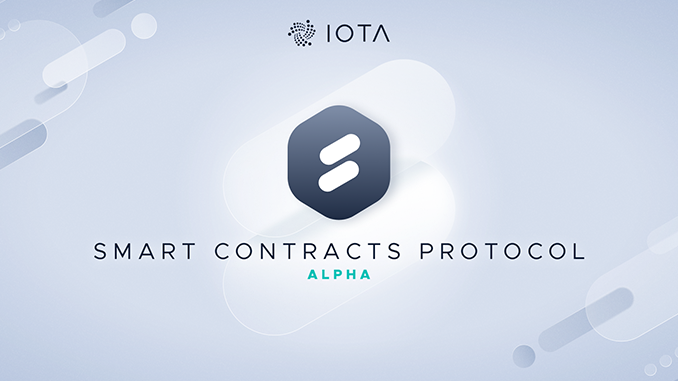
IOTA is getting closer to smart contracts and has released its protocol for them in an alpha version. Developers can already test IOTA Smart Contracts, with an official launch expected in late 2021.
Ethereum (ETH) was the pioneer in enabling smart contracts, and now it’s hard to imagine crypto without the automated contracts. They form the basis of the booming DeFi division and are also the basis for DApps. Thus, smart contracts play an important role in the basic technological renewal of IOTA towards a decentralized Tanglenet (Coordicde). In October 2020, IOTA had presented its concept and first examples of smart contracts in the future IOTA 2.0. Now, the then “pre-alpha” status for the IOTA Smart Contracts Protocol has become an alpha, writes the IOTA Foundation in a blog post.
IOTA highlights that its own Smart Contracts Protocol is said to have major advantages over existing solutions in other ecosystems. For example, IOTA’s smart contracts would generally be processed free of charge and, in the future, contracts from other blockchains could also be integrated through so-called virtual machines. Since IOTA will outsource smart contracts to sidechains, scalability and the selection of own validators should also not pose any problems. Only the contract results will be inscribed back into Tanglenet as the center of IOTA.
IOTA Smart Contracts – the schedule
Developers can try out the current alpha version of IOTA Smart Contracts protocol in the testnet Pollen, which already maps a future decentralized IOTA 2.0 in its specifications. The “experimental” status should be noted, IOTA writes. In the next steps, the Ethereum Virtual Machine (EVM) should find its way into IOTA and the ecosystem should be prepared for data and money exchange with other blockchains. Decentralized crypto exchanges (DEX) such as Uniswap and other DeFi examples are cited as use cases. IOTA oracles can also be easily integrated with smart contracts.
The aim is to have a general implementation of IOTA Smart Contracts with the launch of Coordicide in Tanglenet. Before that, two testnets called Nectar and Honey are to be set up for IOTA 2.0. In parallel, IOTA hopes to complete work on IOTA 1.5 aka Chrysalis this March. A late 2021 launch date is targeted for Coordicide.
Conclusion: IOTA is slowly approaching the DeFi division.
With IOTA Oracles and Smart Contracts as well as colored coins, IOTA is laying the groundwork to enter the DeFi industry. The principle of no fees in Tanglenet could thereby set IOTA apart from the already established applications under Ethereum and increasingly also the Binance Smart Chain. However, one should not forget that the current announcements of IOTA are still far away from the actual business-ready implementation.
Best place to buy Bitcoin and IOTA:

Leave a Reply